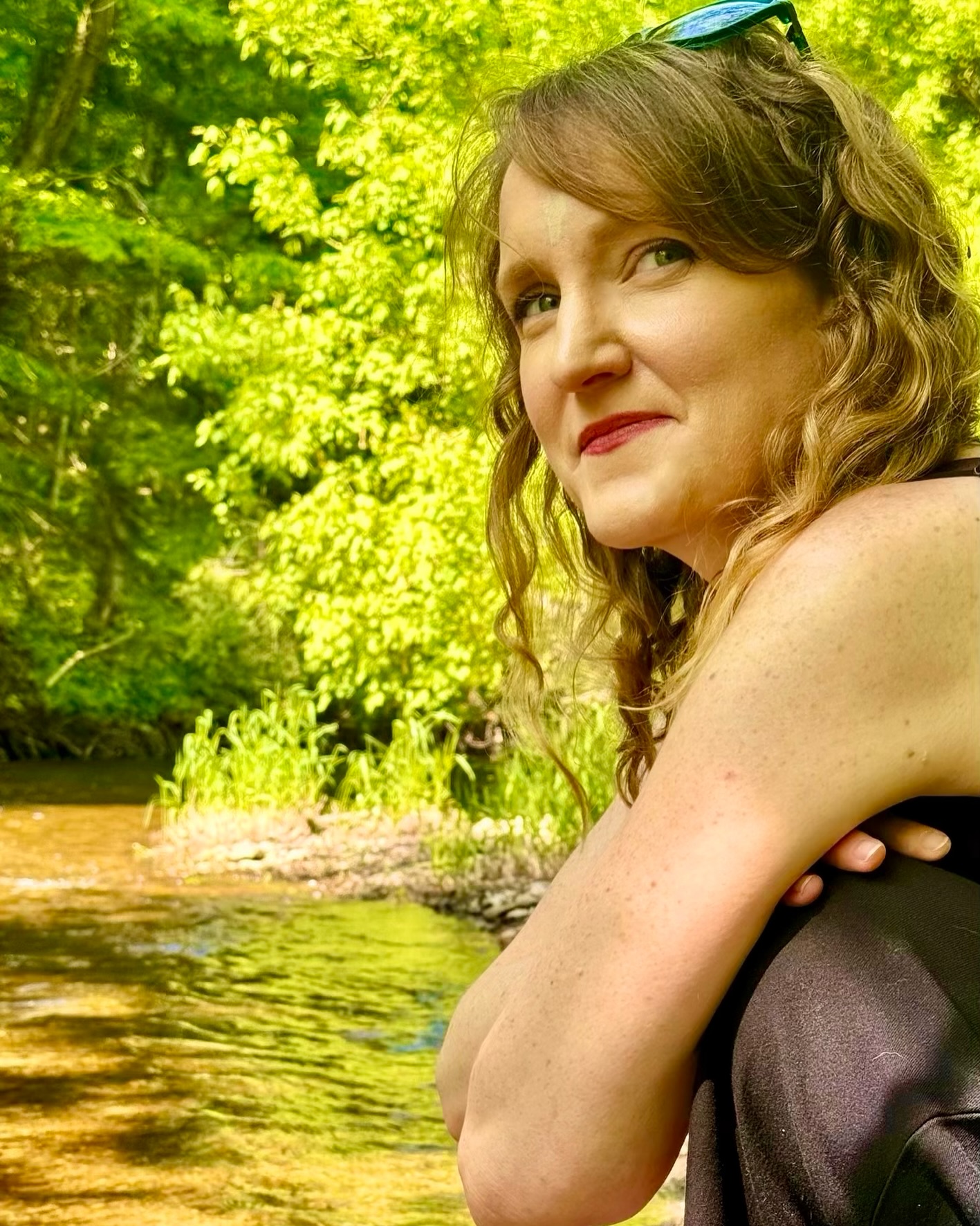
As we delve into fall—a season symbolizing life’s cycles and inevitable endings—I find myself reflecting on my journey of parting ways with significant people throughout my life and my experiences as both a yoga student and teacher.
In life, we witness cycles of birth, life, and death, yet often overlook Turiya—the space after/beyond death, which encompasses these three states as well. Turiya represents the consciousness that permeates everything. If we allow ourselves to slow down, turn inward, move into silence, and make space for reflection, we can access this transformative power.
Turiya is also a fertile space for rebirth. Each new cycle begins—spiralling, rather than simply repeating. Spirals, which ancient cultures carved into stones around the world, from Peru and Sedona to Ireland and Malta, represent the cosmic cycles of birth, life, death, and rebirth. Each spiral turn carries the lessons of past cycles, honouring the new with a fresh beginning. In Hinduism and Buddhism, this is the essence of reincarnation—constantly moving through birth, life, death, returning to source, and then a new birth.
The notion of reincarnation resonates deeply in our relationships, reflecting how connections evolve and transform over time. Each encounter offers us a chance to learn, grow, and ultimately let go, paving the way for new beginnings.
During Navaratri, I devoted nine nights to deepening my connection with the Goddess, Ma Durga—a fierce yet loving deity who demands respect and grants great power. I withdrew from the world as much as possible, undertook my bi-annual Ayurvedic cleanse, and immersed myself in deeper spiritual practices. I received energy healing from a highly recommended healer, gaining deep insights for growth.
Then, something profound began to unfold—I started to remember a past life. Not all the details are clear yet, but the essence is illuminating. Anandamayi Ma, a great yogic saint whom I revere as my spiritual teacher, spoke of this process—how, on a spiritual journey, we may begin to remember past lives. Yet she reminds us to stay focused on the Universal Energy interweaving it all.
While the full details are still emerging, I recalled a life as a spiritual guide in a place I have felt drawn to since childhood in this lifetime. I remember the essence of my dedication, cleanliness (food and duties), and connection to spirit. There was a group of us that would do this and we were initiated into this lifestyle since childhood as our life purpose. I recall even praying and dedicating rituals to a female deity in that lifetime as well (different from the one I pray to now, but similar in Energy). These memories align with the many things I naturally do and gravitate towards in this life. And now, it’s as if I’m spiralling back through these energetic memories, pulling the fragmented parts into this lifetime, to only amplify this life.
We are each living new spirals within our own cycles, and in honouring that journey, we may find echoes of the past woven into the fabric of the now.
Spirals reveal themselves in my relationships. My ex and I reconnected during my dog’s final days. She adored him, and our bond was renewed through this shared connection. After our romantic relationship ended, we tried to remain friends, but the residue of past love and hurt made it difficult. Taking time apart—a time I view as Turiya—allowed us to return to each other as friends with fresh perspectives, honouring the end of the past cycle and opening to a new way of connecting. This transformed friendship, a new ring in the spiral of our shared experiences, is one I hold dearly.
During a recent hike, I watched raindrops fall into a still river, realizing that nothing truly ends; it simply transforms. Being present to these shifts has taught me to honour each new form as it arises—whether in student-teacher relationships, romantic bonds, or friendships. It’s the dance of Shakti, the divine feminine energy of creation and transformation.
Navigating the shift from student to peer with one of my former teachers has also brought valuable insights. My time as his student concluded 14 years ago, and I have studied with a new teacher for the past 7 years (my studies with this current teacher has illuminated a galaxy of energy within). I realize that I have grown so much since my departure of studying with this former teacher. As we developed a friendship, lingering traces of the old dynamic remained, which ultimately dissolved the friendship as well. I learned that unless both people fully release the roles of the past, it can hinder the connection’s growth into something new. A student selects their teacher, and the role cannot be imposed (especially not to reassert power); a student may leave a teacher and the release is just as important. It’s best not to try to push the old cycle onto the new form or connection.
This journey of connection, release, and rebirth has illuminated profound insights, enriching my path as student, teacher, and friend.
Honouring Lessons in the Dance of Teacher and Student
As I reflect on the relationships and connections that have come full circle in my life, these lessons stand as insights drawn from endings, rebirths, and the silent space of Turiya, teaching me to honour each encounter as part of a greater journey.
1. Cultivating Respect & Boundaries in the Student-Teacher Relationship:
Through cycles of growth as both student and teacher, I have learned that the student-teacher relationship is sacred. Teachers receive admiration from students (as teachers are considered to embody certain aspiring ideals) and if interest occurs, the teacher could lean towards favouring the student (giving extra attention and privileges), consciously or unconsciously. This can cause problems with power dynamics (even if the teacher has their own code of ethics). Clear boundaries are vital to preserving this integrity and ensuring the focus remains on the student’s growth. Other students may also feel uncomfortable in an environment where there are no clear boundaries established between a student, participant/assistant of a workshop, class, or training, and the teacher (affecting their learning experience). It’s important to receive the feedback that a student felt uncomfortable in your workshop due to your interactions instead of dismissing it as “stories” (especially when it is revealed there was a participant you were in relations with, in the workshop). If there’s an attraction to more than one student over the course of time, this is something to look at within as a teacher (as students must be avoided as being seen as potential partners); even with frustrations with dating and feeling it’s easier to date students as they know you. I have witnessed teachers play out the karmic cycle of their teachers (even when they reflect, write, or speak about the poor choices of their own teachers). I believe when we choose to study with a teacher, we may also unconsciously play out their karmic cycle (even adopting their characteristics, like charisma), just like we notice we suddenly sound and act like our parents. Or we can consciously choose not to perpetuate the karmic cycle and bring an end to destructive patterns that ripples out into other lives and relationships.
2. Embracing Feedback as a Gateway to Growth:
During Navaratri, I had been reading the Gospel of Anandamayi Ma. One passage resonated, where she said: “If someone talks ill of us, it is Brahman (Ultimate Reality) who has come in those words to purify us. If someone talks well of us, it is also Brahman, because God has come in that form to encourage us.” All feedback—whether praise or criticism—offers a chance for inner reflection. Every encounter provides an opportunity to pause, look inward, and perhaps make adjustments. I now see feedback as Brahman’s voice, inviting us to soften, listen, and grow with grace, trusting that each note helps us refine and mature on our path. Can we embrace it or do we deflect and/or push the person away that is giving the feedback?
A question to consider: when we feel someone is not supporting us, do we take a moment to reflect on the good they’ve done for us prior? Sometimes, we may think their feedback is unsupportive, overlooking that their support may be in guiding us to see where our actions could harm others or ourselves. It’s easy to associate support with admiration, but true support often comes from those who see the bigger picture and speak honestly, even when it’s uncomfortable.
3. Remaining Humble as Lifelong Students of Life:
As a teacher, we may feel we have a vast wealth of knowledge and wisdom to share (especially if we have been on this spiritual path for a long time), but the truth is, life itself is the ultimate teacher. Humility invites us to continually check in, reflect on our values, and remember that even the smallest interaction holds potential lessons. This openness keeps me grounded and receptive to the insights that each person I meet might bring.
4. Seeing ALL the Shadows of Perfectionism as Part of the Journey:
Perfectionism is a deeply rooted samskara (habitual pattern). Yoga teaches us that when one shadow is revealed, others may follow (also revealing a web related to that one deep samskara). If inwardly we associate perfection with love, we may resist feedback, perceiving it as a threat that we are not perfect, which we may associate to being unlovable. We may try to question why the person is saying what they are saying, using reasons to shift the focus off the feedback and self-reflection (saying it’s projections, trauma, etc. – in some cases, this may be the case). This is deflective and dismissive. If we take the feedback as internal shaming, we may be even more resistant to feedback. When we soften and allow ourselves to be open, feedback can become an invitation to heal and find clarity within ourselves and in relationship to the other. If these deep samskaras are not healed, they are perpetuated in new student-teacher relationships, romantic relationships, or friendships, and perhaps even into our next life (ring of the spiral).
5. Practicing Presence over Transactional Desires in Relationships:
True connections arise from genuine presence rather than transactional desires. When our focus shifts to wanting something from someone in this moment—be it relationships, admiration, sex, recognition, popularity, material gain, or money—we may lose sight of our purpose, and the Essence of those around us. There’s nothing wrong with wealth, fame, sex (it’s part of Shakti), but is it coming from a place of honouring the Essence behind it, or is it to gain something on the surface level (ego led)?
Authentic presence means engaging with others without ulterior motives, recognizing them as reflections of the Universe. Transactional relationships lead to discard when we no longer get what we want. Practicing gratitude and being attuned to the gifts in our lives enhances our relationships and experiences. When we operate from a place of transactional desire, we risk missing the beauty and richness of the present moment and the gifts, opportunities, friendships, and relationships currently present in our lives as a reflection of the Universe.
Desire isn’t a bad thing. In yoga and Tantra, the goal isn’t to eliminate desire but to refine it. By approaching desire mindfully, we bring more awareness to how our actions and intentions affect others. When we honour the other person in our desire, we’re more likely to create meaningful, balanced connections that uplift both parties (and this is reflected in the world around us). It becomes a sacred exchange rather than a transaction, cultivating respect, love, and wholeness in the process.
6. Providing Safety Without Weaponizing Trauma:
As I journey through transformative relationships, I realize that trust and safety are paramount. Using someone’s vulnerabilities or past experiences (trauma or challenging experiences, such as what happened to them in past relationships) to shield ourselves from self-reflection erodes trust and obstructs the path to healing. Knowledge of someone’s history is a privilege and must never be weaponised to avoid our own inner work. When a spiritual teacher does this to a student or friend they know (who is trying to offer feedback on questionable behaviour), this is even more concerning—weaponizing someone’s past to get the focus off of their behaviour.
At a recent Badge of Life Canada conference, I shared how yoga helps with post-traumatic growth. A police officer shared how some colleagues were shamed for seeking help with their trauma in his field which causes people to avoid seeking help and turn to other coping mechanisms, like alcohol (this stuck with me—what message do we send to others when we shame other people’s difficult experiences). If we weaponize trauma, it reflects more so on us and our lack of empathy, our own inner shaming, and avoidance of looking at our actions and pain.
7. Bringing Lightness to Conversations:
Approaching situations and others with lightness and playfulness in challenging moments helps create a compassionate space, free from perceived judgment or shame. This allows others to feel safe, explore, and grow at their own pace without feeling pressured to change. And it reminds us that everything changes—thoughts, emotions, situations, lives—so why not bring lightness to it.
Embracing Cycles of Transformation
As I reflect on my journey as both teacher and student, I’m reminded that life itself is a spiral—a sacred dance that carries us forward, honouring each past cycle while inviting us into new ones with a fresh perspective. Each relationship, whether a romantic bond, a student-teacher dynamic, or a friendship, leaves an imprint that shapes the next. These spirals are not mere repetitions; they’re expansions, each cycle drawing us deeper into understanding, presence, growth, and ultimately the Essence of Consciousness.
Embracing Turiya, I find myself lingering in the stillness of completed chapters, honouring the space that follows, where old patterns dissolve and new connections await (even if it’s with the same person, but a different type of connection). This fertile silence—the energy between endings and new beginnings—invites me to enter the next cycle with reverence, holding the wisdom of past cycles in one hand and the openness of a new beginning in the other.
* To the former teacher, who was my friend for a brief time, who may read this. I still have deep love for you and deep admiration for the excellent teacher you are. I don’t know if there will ever be spaciousness for healing. There was a glimmer of it when you asked to work on a friendship (after I wanted to walk away), but then your heart closed. I hope there will one day be spaciousness for healing again and I will be open to the new form of whatever the relationship may look like, except student-teacher (from death, into turiya, emerges a new form or birth). If not, I will always keep sending you love and gratitude for the soul and essence of who you are.
Shanine Dennill
Shanine's speciality is bringing Rituals and Rest to students to awaken to (and remember) the sacred. She offers yoga and meditation classes, powerful nature and moon events, and profoundly transformative teacher trainings. Her spiritual journey began at a young age when the death of family members touched her and made her seek the meaning of life and death. This has led her on a quest to live and share with others the wisdom of living life with deep reverence, fully embodied, and to our greatest potential. She is also an Ayurveda Health Advisor.







